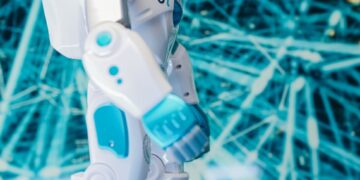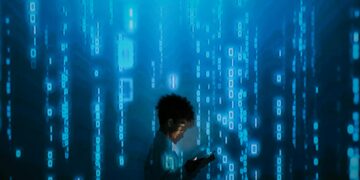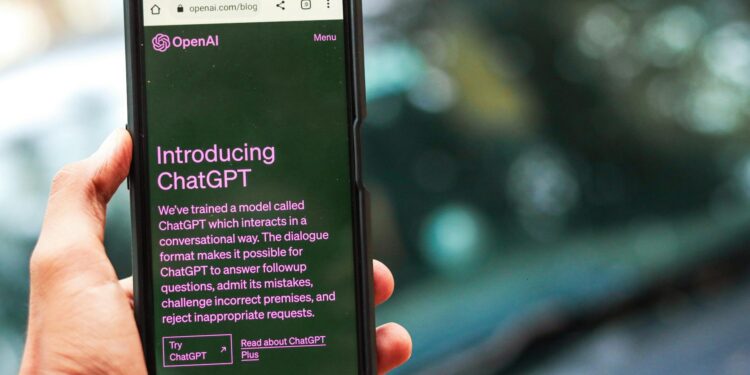The proliferation of generative artificial intelligence is no longer a niche technological marvel; it is an undeniable force reshaping the very fabric of our global society. From crafting intricate prose and realistic imagery to optimizing complex industrial processes, AI’s capabilities extend far beyond mere content creation. This explosive growth signals a profound paradigm shift, compelling every industry to reimagine its core operations and strategic frameworks. More critically, it thrusts humanity into a necessary and urgent re-evaluation of fundamental concepts: the essence of creativity, the nature of human work, and the overarching trajectory of our interconnected digital future. This article explores the multifaceted impact of generative AI, delving into its transformative power and the critical questions it poses for our evolving world.
The seismic shift across industries
Generative AI’s influence has rapidly transcended the realms of artistic expression and basic content generation, manifesting as a foundational technology capable of revolutionizing diverse industrial sectors. Its ability to create novel outputs, not merely process existing data, empowers industries to innovate at an unprecedented pace. In healthcare, for instance, AI algorithms are accelerating drug discovery by designing potential molecular compounds, drastically shortening research cycles and identifying personalized treatment protocols. The manufacturing sector leverages generative design to optimize product structures, leading to lighter, stronger, and more efficient components, while also predicting maintenance needs to minimize downtime. Financial institutions employ AI for sophisticated fraud detection, real-time market analysis, and the creation of highly personalized financial products. Even in retail, generative AI is powering hyper-customized marketing campaigns and dynamic supply chain optimizations that adapt to real-time consumer behavior. This widespread integration is not about marginal improvements; it represents a fundamental re-architecture of operational workflows, product development, and customer engagement strategies, challenging established business models and fostering entirely new avenues for value creation across the board.
The evolving landscape of creativity
The advent of generative AI has sparked an intense, often polarizing, debate about the very nature of creativity. For centuries, creativity was considered a uniquely human domain, a testament to our consciousness and capacity for original thought. Now, AI systems can generate compelling art, music, literature, and designs that often defy easy distinction from human-created works. This capability forces a crucial re-evaluation: Is AI a tool to augment human ingenuity, or a potential competitor capable of devaluing traditional creative skills? Many artists, designers, and writers are embracing AI as a powerful collaborator, using it to rapidly prototype ideas, explore new aesthetics, or overcome creative blocks. The rise of the “prompt engineer” illustrates this shift, where the art lies not in execution but in articulating a vision to the AI. However, this also brings forth complex questions regarding authorship, intellectual property rights, and the perceived “soul” or “intent” behind an AI-generated piece. The future of creativity likely involves a symbiotic relationship, where human insight and emotional depth guide AI’s generative power, pushing the boundaries of what is possible and redefining originality in a co-creative paradigm.
Reshaping the future of work
The integration of generative AI is profoundly reshaping the world of work, leading to both significant opportunities and considerable challenges. Automation of routine, repetitive, and even some cognitively demanding tasks is accelerating, potentially displacing jobs in sectors ranging from customer service to legal research. However, it is equally important to recognize AI’s role in augmenting human capabilities, freeing up employees to focus on higher-value, more strategic, and inherently human-centric tasks. For example, AI can draft preliminary reports, analyze vast datasets, or even generate code snippets, allowing professionals to dedicate more time to critical thinking, problem-solving, and interpersonal communication. This shift necessitates a significant re-skilling and up-skilling of the workforce. New roles are emerging, such as AI ethicists, data curators, and prompt engineers, demanding a blend of technical proficiency, critical thinking, and a deep understanding of human-AI interaction. The imperative for lifelong learning becomes paramount, as adaptability and continuous skill development will be key to navigating a job market in constant flux. The challenge for societies and governments is to manage this transition equitably, ensuring that the benefits of AI-driven productivity are widely shared and that those impacted by displacement are provided with pathways to new opportunities.
| Skill category | Example skills in demand | Impact of generative AI |
|---|---|---|
| Technical proficiency | Prompt Engineering, AI Model Understanding, Data Literacy, AI Tool Integration | Ability to effectively interact with and leverage AI tools for various tasks, from content generation to data analysis. |
| Critical thinking & ethics | Bias Detection, Ethical AI Development, Critical Evaluation of AI Outputs, Problem Solving | Ensuring AI is used responsibly, outputs are accurate, and addressing societal impacts. |
| Creative & interpersonal | Human-AI Collaboration, Emotional Intelligence, Communication, Storytelling, Design Thinking | Focussing on areas where human intuition and social skills remain superior and necessary. |
Navigating our digital future
Beyond its immediate industrial and creative impacts, generative AI forces a comprehensive societal re-evaluation of our digital future. This deep introspection encompasses critical ethical dilemmas, governance frameworks, and the very structure of information dissemination. The potential for AI to generate hyper-realistic deepfakes and spread sophisticated misinformation poses a significant threat to truth, trust, and democratic processes, demanding robust verification mechanisms and media literacy initiatives. Questions of intellectual property, data privacy, and algorithmic bias require urgent global dialogue and regulatory innovation to ensure fair and equitable development. Furthermore, the increasing sophistication of AI systems prompts philosophical considerations about consciousness, human identity in an increasingly automated world, and the potential for artificial general intelligence. Our digital future will be defined not just by what AI can do, but by the ethical guardrails, transparent governance, and societal values we embed into its development and deployment. This necessitates a proactive, collaborative approach from policymakers, technologists, educators, and citizens to shape a future where AI serves humanity’s best interests, augmenting our capabilities while preserving our core values and societal well-being.
The ascent of generative AI marks a watershed moment, extending far beyond its initial reputation as a content generator. As explored, it is fundamentally reshaping industries, from healthcare to finance, by creating novel solutions and optimizing operations at an unprecedented scale. This technological leap compels us to redefine creativity itself, moving towards a paradigm of human-AI collaboration where innovation is accelerated, yet questions of authorship and originality become increasingly complex. Simultaneously, the world of work is undergoing a profound transformation, necessitating new skill sets focused on critical thinking, ethical AI deployment, and human-centric roles, while challenging societies to manage job displacement and foster continuous learning. Ultimately, navigating our digital future demands proactive engagement with the ethical implications of AI, establishing robust governance, and cultivating a thoughtful approach to ensure this powerful technology serves humanity’s collective well-being. The responsibility lies with us to harness its potential wisely, charting a course toward a future that is both innovative and equitable.


















